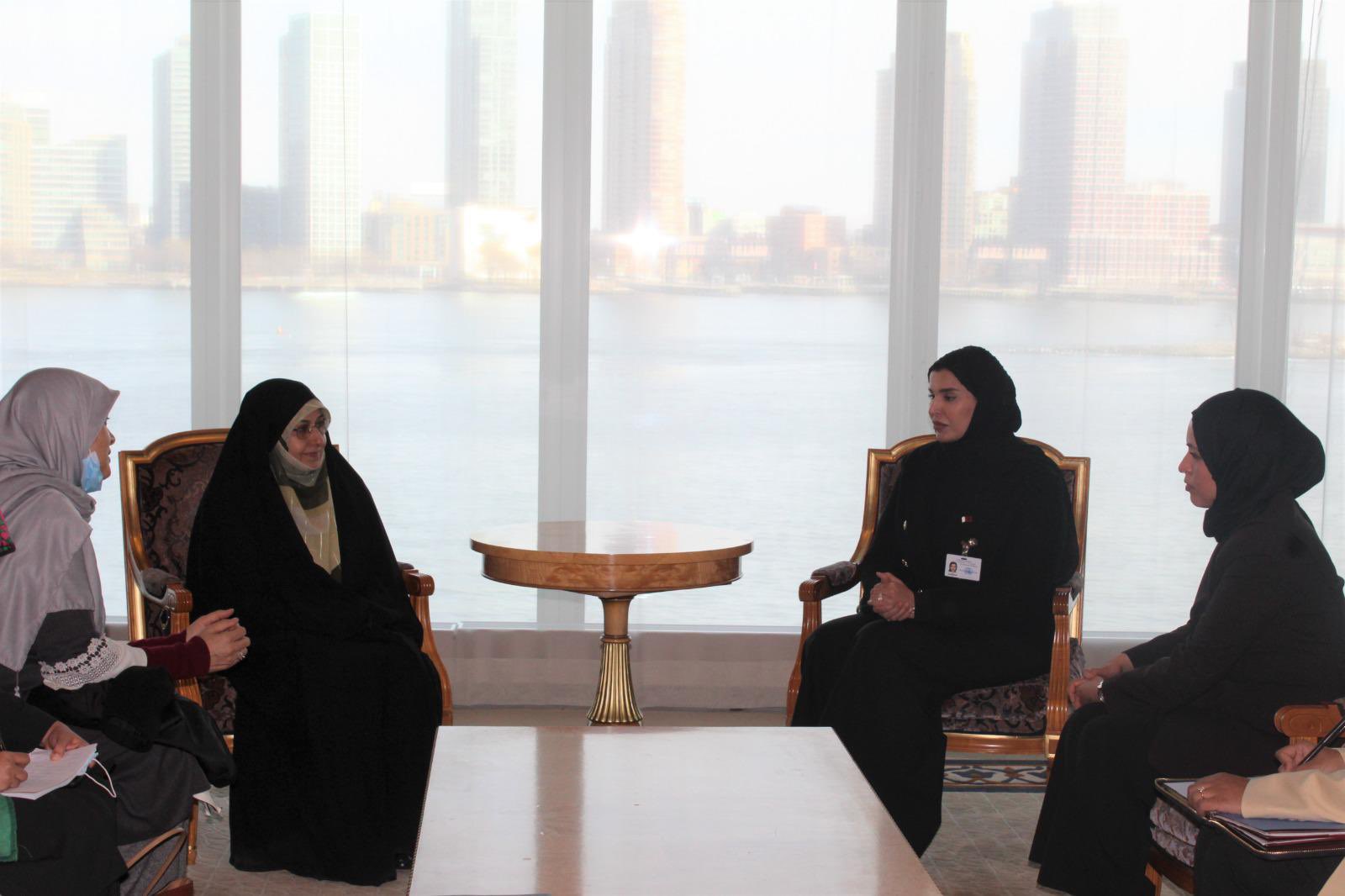The meeting was held on the sidelines of the 66th session of the United Nations Commission on Status of Women.
The Iranian Vice President for Women and Family Affairs, Ensieh Khazali, held a bilateral meeting with Qatari Minister of Social Development and Family Mariam bint Ali Al-Misned to discuss ways of cooperating on a plan to tackle the role of women with regards to family and children.
This comes during the 66th session of the United Nations Commission on the Status of Women where various ministers take part in to discuss ways of achieving gender equality and to empower women and girls in the fields of climate change, environmental and disaster risk-reduction through policies and campaigns.
This comes following President Ebrahim Raisi’s recent visit to Doha, where a number of agreements were signed between the two countries. The two countries are eyeing a potential agreement to be inked, mainly in the women and family unit sector.
During the meeting, Khazali proposed the arrangement of a special working group for women in order to address the objectives that emerge from said field.
The Qatari minister welcomed the proposed cooperation plan and reiterated the importance of women’s role in the family and the need for a “multidimensional view” when approaching women’s position in the family.
The two sides also discussed female empowerment and their significant position within the family unit. In the talks, they discussed children, with a focus on new means of educating them.
Al-Misned highlighted the cultural commonality between Iran and Qatar regarding the role of women in the family. She also suggested that one way to preserve the status of women in society is to oversee an inflow of projects such as remote working for women, which will be implemented in Qatar.
The Iranian diplomat and Italy’s Minister for Equal Opportunities and Family, Elena Bonetti, also held meetings where they addressed the vulnerability of women in world tragedies and the “necessity for helping them.”
Iranian women under US-imposed sanctions
Upon noting remarks regarding the status of women under the United States crippling sanctions to the Islamic Republic News Agency, Khazali said “Iran [has] presented a report on problems created for Iranian women and children after being imposed by the sanctions, medical bans in particular.”
Economic sanctions “as external factor are likely to contribute economic shocks which will, in turn, have detrimental effect on women’s economic participation in the labour force, unemployment and earned income since economic crisis directly transfers into negative impact on the demand for women’s labour,” Emine Gozde Torpak cited in her “The Impacts of Economic Sanctions on Iranian Women” thesis in 2020.
As for women who did not “lose their waged jobs faced a decline in earned income” due to unequal wages that decreased under sanctions even further, she argued.
The nature of economic sanctions exerted its burden especially “on women who were the head of households since they had to compensate for withdrawal of the social supports provided by different religious foundations in Iran,” as they were entirely dependent on the government’s financial assistance, which have been struggling immensely under the US sanctions.
Follow Doha News on Twitter, Instagram, Facebook and Youtube







